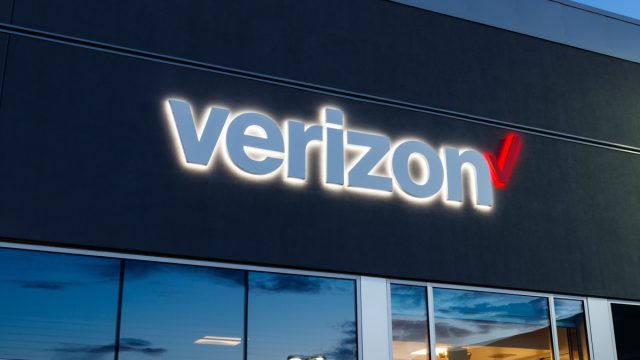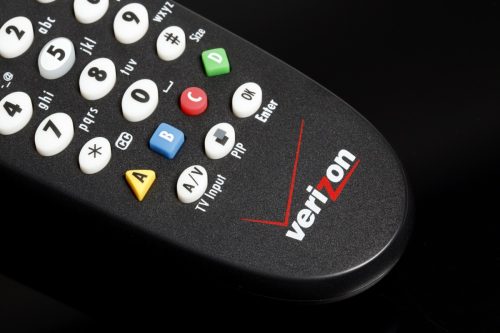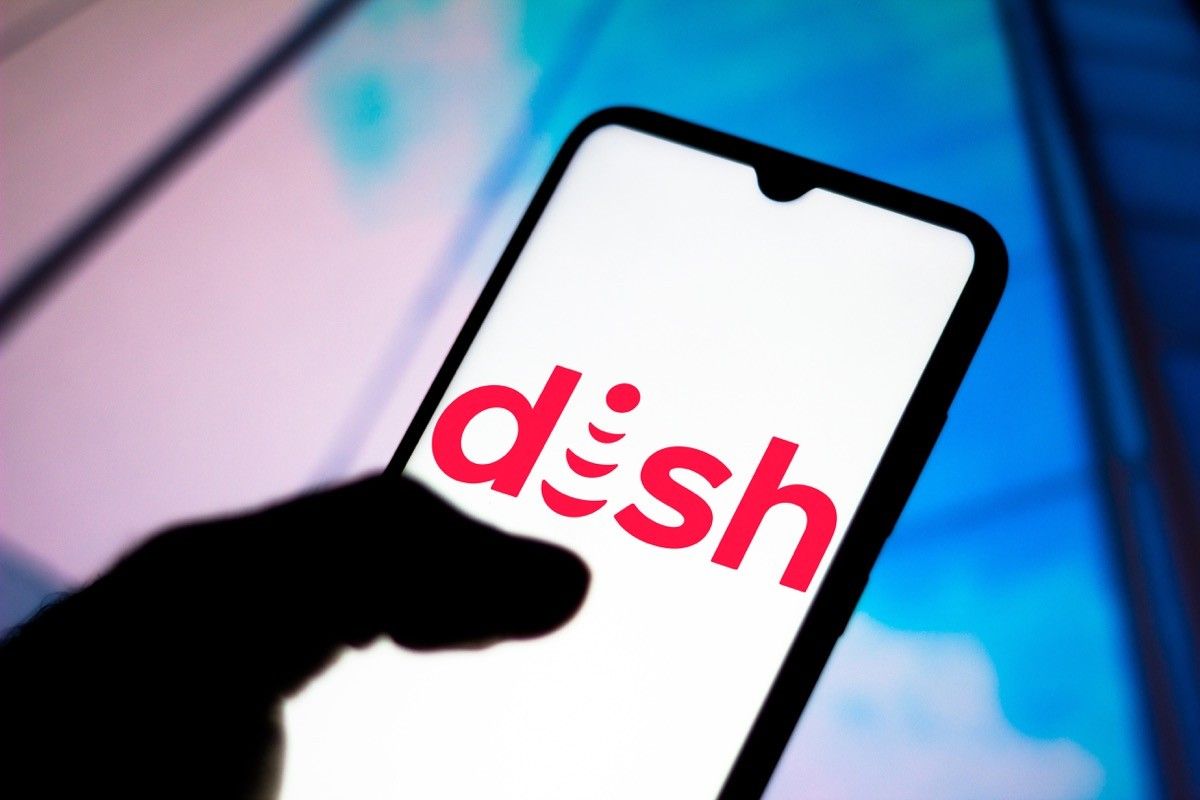If You Have Verizon Fios, Prepare to Lose Access to Fox and NBC Tomorrow

For many of us, watching TV isn’t just a way to kill time—it’s an essential part of our schedule. But whether you’re a casual viewer or someone who believes in appointment television, we all rely on being able to watch news, sports, and other programs when we want to. To do so, we often turn to reliable local channels, which is one of the major reasons we haven’t yet cut the cord. Those who get their cable from Verizon Fios, however, currently run the risk of losing some of these local stations, including Fox and NBC. Read on to find out more about the channels that could be getting dropped.
READ THIS NEXT: If You Have This Popular TV Provider, Prepare to Lose Access to Football.
Carriage disputes are inconvenient, but not uncommon.

If you haven’t fully shifted over to streaming services, you’re probably familiar with carriage disputes—which happen more frequently than we’d like. Broadcasters and cable companies often become enmeshed in these disagreements when contracts are due to expire and negotiations are taking place.
Just this week, in fact, subscribers to Comcast’s Xfinity service were warned that they could soon be without their local news channels and sports programming owned by Nexstar Media Group.
According to The Desk, the main sticking points in ongoing negotiations include the amount that Nexstar is charging for Comcast to carry local stations and digital networks, as well as an ongoing lawsuit related to a New York City channel (WPIX-TV).
There’s no confirmed date for when the current agreement expires, but as The TV Answer Man points out, the last deal was signed on Dec. 31, 2019, and agreements typically end on or around the same calendar day. If that’s the case and no new deal is reached, almost 200 stations could disappear before the end of the year.
Now, Verizon Fios customers are set to see their channels vanish even sooner.
Once again, price increases are at the core of the issue.

In a post on its website, Verizon announced that its content deal with Cox Media Group (CMG) is expiring tomorrow, Dec. 15, and they are in the middle of a renegotiation to keep programming available. Verizon said it is “working hard” to reach a new agreement, but that price increases are causing a stalemate.
“Verizon remains committed to making these channels available to our customers, but simply cannot agree to such unreasonable increases,” the post reads. In a statement to Broadcasting+Cable, Verizon elaborated on the situation, accusing CMG and other broadcasters of charging too much for access to local stations.
“Broadcasters often remove their channels from consumers until TV providers agree to pay more—even though the same channels are available for free over the air,” Verizon said. “It’s time for our leaders at the FCC [Federal Communications Commission] and in Congress to protect consumers by holding them [CMG]—and other broadcasters who frequently use this tactic—accountable. We will continue to work hard to put our customers first and come to a fair agreement on their behalf.”
RELATED: For more up-to-date information, sign up for our daily newsletter.
Hundreds of thousands of people will be affected.

In the event that a new agreement is not reached, customers in Massachusetts, Rhode Island, and Pennsylvania will lose channels, as Verizon Fios primarily operates in the Northeastern region of the U.S., The Desk reported. According to MassLive.com, Verizon predicts that nearly 340,000 customers are at risk.
Channels owned by CMG include WFXT FOX in Boston and Rhode Island, as well as WPXI NBC and Pittsburgh Cable News Channel (PCNC) in Pittsburgh—all of which could be dropped from subscribers’ Fios service tomorrow. Still, CMG shared a positive outlook.
“We have been negotiating productively with Verizon for several weeks and remain optimistic we will come to terms on a fair market deal to keep our award-winning local news, investigative journalism, and popular sports and entertainment programming on Fios TV,” CMG said in a statement, per Broadcasting+Cable.
CMG is involved in a separate dispute.

While Verizon customers wait for the other shoe to drop this week, Dish subscribers are already dealing with missing channels, as the provider is also involved in a dispute with CMG. The companies failed to reach an agreement, which led to the removal of local stations on Nov. 28.
The blackout currently affects nine markets in total, including some of the same channels that Fios customers may lose, namely WFXT FOX in Boston and WPXI NBC in Pittsburgh.
Dish and CMG announced the blackout in separate press releases, as the dispute seems to be particularly contentious. According to Dish, it has historically offered customers the right to remove local channels from their plan and save money, but CMG “wants to force DISH customers to pay for local channels if they choose to receive them free with an over-the-air-antenna.” CMG has also proposed “an exorbitant rate increase,” Brian Neylon, group president of Dish TV, said in a statement.
For its part, CMG says that Dish is using a “well-worn anti-consumer drop tactic” and isn’t making a “serious offer to continue carriage of Cox Media Group’s market-leading local TV stations.” Going further, CMG said that they asked Dish to keep the stations on the air during negotiations, but that Dish declined. Two days later, the company sent a cease-and-desist letter to Dish, asserting that the provider’s Nov. 28 press release contained “knowingly false statements,” per a letter from CMG’s attorney.